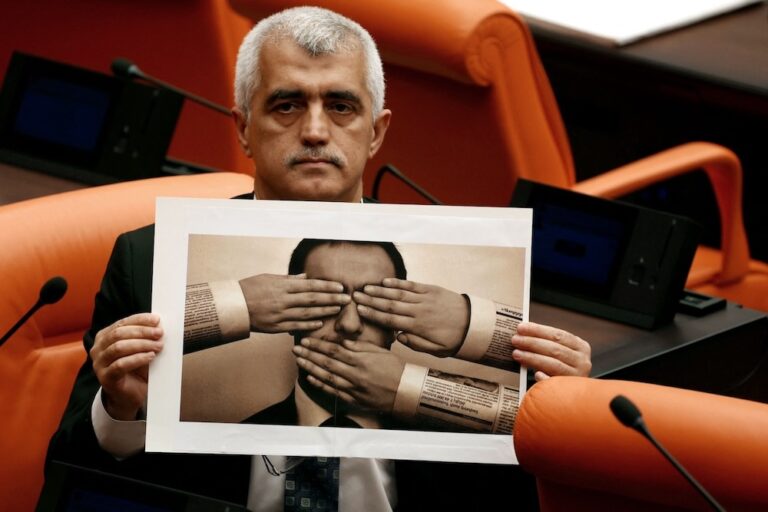(RSF/IFEX) – In a letter to the president of the Turkish broadcasting authority (RTÜK), Nuri Kayis, RSF protested the ban on the British Broadcasting Corporation’s (BBC) and Deutsche Welle’s Turkish language news programmes broadcast on FM radio. “The ban imposed on these international radio stations is an obstacle to information pluralism. If the measure is […]
(RSF/IFEX) – In a letter to the president of the Turkish broadcasting authority (RTÜK), Nuri Kayis, RSF protested the ban on the British Broadcasting Corporation’s (BBC) and Deutsche Welle’s Turkish language news programmes broadcast on FM radio. “The ban imposed on these international radio stations is an obstacle to information pluralism. If the measure is applied, it would constitute a backwards step with respect to Turkey’s international commitments, notably within the Council of Europe,” stated Robert Ménard, the organisation’s secretary-general.
RSF noted Kayis’ coolness to the measure and his intention to submit the matter before the courts. However, the organisation urged him to turn his statements into action and, in his capacity as RTÜK president, take all the necessary steps to ensure that the measure is not applied.
According to information collected by RSF, on 8 August 2001, the Turkish government’s audio-visual monitoring organ, the RTÜK, decided to ban the BBC’s and Deutsche Welle’s Turkish language news programmes. Kayis, the RTÜK’s president, expressed his misgivings over the measure, and insisted that he was powerless to change the monitoring body’s executive committee’s decision. He stated his intention to file an appeal before the courts. The programmes targeted by the measure, which were recently broadcast via the non-stop news station NTV, fall under the audio-visual control law, which bars regular broadcasts of foreign programmes, or their direct broadcast in the country. Deutsche Welle immediately stopped its broadcasts, but the BBC is awaiting a court decision before deciding whether to act on the ban.


